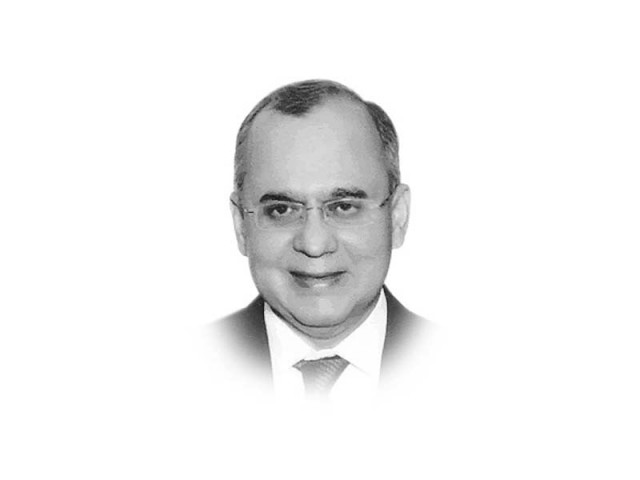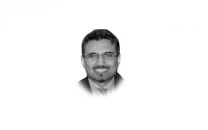Significance of Islamabad session of OIC Council of Foreign Ministers
OIC CFM may be a starting point to getting the voice and aspirations of Muslims matter in shaping the 21st century

The 48th session of the Council of Foreign Ministers of OIC member states is being held on 22-23 March 2022 in Islamabad. Comprising 57 states, the OIC represents the aspirations of over 1.9 billion Muslims of the world. Established in 1969, the OIC’s founding principles encapsulate the aspirations of Islamic Ummah for a better world based on respect for UN Charter principles and international law and pooling of resources for advancing Islamic causes for justice and peace as well as economic, social and scientific progress.
The OIC is the largest multilateral grouping after the UN. Its membership extends from the east coast of Africa to the Pacific Ocean in the west. In geographical expanse and in terms of natural resources the OIC members are extremely well endowed. Throughout human history these countries and regions have played a pivotal role in shaping the international environment and contributed to enriching civilisational interactions for the good of mankind.
Centuries of colonial or alien domination eclipsed the value and worth of these Islamic societies which nonetheless maintained their Islamic identity in adverse circumstances and eventually regained their independence and brought to an end the classic colonial phase. The age of decolonisation was replaced by neo-colonialism, whereby the Islamic world was once again subjected to divisions and internal strife imposed or encouraged by exploitative forces.
The realisation that Islamic solidarity and unity offered an opportunity to escape this vicious cycle of perpetual injustice led to the creation of a pan-Islamic forum. It was King Faisal’s response to pan-Arabism, as signified by the League of Arab States. Saudi Arabia has thus been the key patron of the OIC and its hosting of the Two Holy Harams and immense resources gave it the lead role, well accepted and deeply respected, in advancing the OIC cooperation.
At the end of the Cold War, the OIC played an extremely important political role in defending the just cause of Bosnia Herzegovina, in trying to salvage Somalia after the collapse of the Siad Barre regime, in espousing the just cause of Palestine and Kashmir and in bringing a semblance of normalcy to Afghanistan. Its role especially at the UN during these years (1989 to 1995) was internationally appreciated.
However, with the dawning of an era of unipolarity, multilateralism as a way to administer a rule-based order in accordance with the vision and principles of the UN started to recede. OIC was no exception. Its role was marginalised and it stood helpless as Iraq, Libya and Syria fell victim to power politics. Extremism and terrorism rebounded and Islamic societies were its first victims. Islamophobia became rampant and internecine strife between OIC states sapped the vitality of Islamic communities. Pakistan along with several Asian Islamic states that have been key adherents of the concept of the Ummah were concerned and have tried to revive and renew the concept of Islamic solidarity.
It is in this context that the OIC CFM in Islamabad needs to be viewed. A further effort by Pakistan to unite the Islamic world and to make it an important factor in shaping the 21st century world order. The world has become more complex and the emerging multipolarity of power brings in its wake new uncertainties. A fork in the road has been reached. On the one hand, the path to peace, stability and prosperity is through international cooperation leading to linear development. On the other is fraying of the international order and reversal of the arrow of time to the medieval period of conflicts and strife and colossal damage all around. Most countries of the world will either have to opt for multilateral cooperation or succumb to the dictates of power politics.
And this is not merely academic. Pressing issues such as the oppression of Kashmiris and Palestinians, the conflict in Yemen, the unjust sanctions against Islamic countries, the plight of the Muslims in India, questions about stability and harmony in Afghanistan, the nefarious Islamophobia campaigns, the rise of fascist and neo Nazi ultra-right, the downturn in global economy, the spiraling inflation, indebtedness, new technologies, developmental and environmental challenges are notable issues that require concerted action.
Besides dealing with the political and security issues, the Islamic societies need to focus on education, in particular science and technology, to catch up with the developed world. The right to development is a fundamental human right. Whether this could be assured by whatever political system is immaterial. Pragmatic action is required to utilise the potential of these societies to develop holistically. It is to be hoped that the OIC will develop ways and means to establish partnerships for development and shared prosperity.
The pristine values and teachings of Islam provide the only sure means of bringing enlightened evolutionary processes for mankind’s progress. Otherwise, the world could relapse into endless wars and terrible sufferings as is being witnessed in some regions. The OIC must also do its best to bring in its fold — as observers — the US, EU and China. Russia is already an observer. By getting the major powers involved, the OIC could help get the value and worth of its noble efforts realised. A dialogue partnership programme with these major powers may be considered as a means to make the OIC’s efforts for global peace and development gain more traction.
The OIC CFM in Islamabad may be a starting point to getting the voice and aspirations of some 2 billion Muslims matter in the shaping of the 21st century.
Published in The Express Tribune, March 18th, 2022.
Like Opinion & Editorial on Facebook, follow @ETOpEd on Twitter to receive all updates on all our daily pieces.
















COMMENTS
Comments are moderated and generally will be posted if they are on-topic and not abusive.
For more information, please see our Comments FAQ